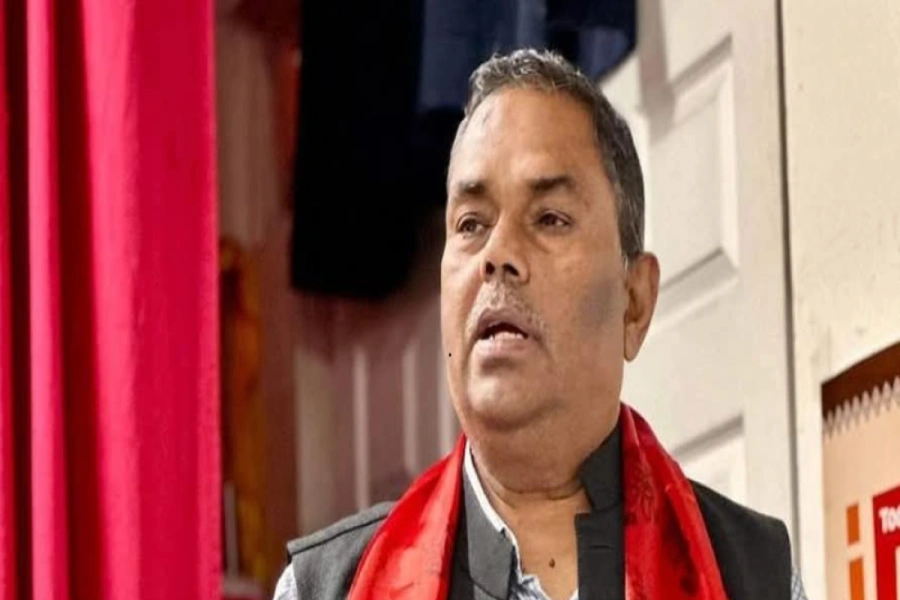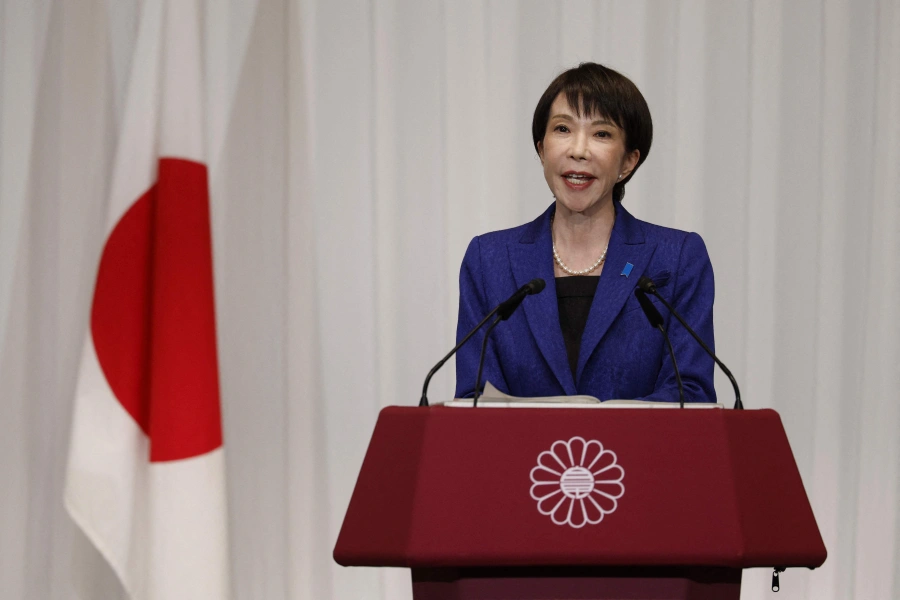Due to advances made in the arena of climate science, weather forecasts are often more dependable these days. However, once in a while, calculations and observations of meteorologists can also go haywire.
As if to prove that the weatherman too is human, a sunny afternoon promised in the morning turns out to be a wet one. It begins to drizzle when a Nepali family takes foldable chairs out from the boot of their car parked along the banks of a lake, among the woods of upcountry Massachusetts.
The Chinese make durable super sized umbrellas for US markets, but picnics in the rains are no fun even while being covered. Picnics imply food and fun outdoors.

Everything is then hastily put back into the car. The family and their guests from Nepal head to the nearest Indian restaurant for their fix of daal-bhaat. Dry lunch consisting of roasted Chuira, packets of Haldiram bhujiya and delicious savories prepared at home is saved for snacking. Some of it will be munched in the car on the way back home.
It has been claimed that people adopt clothes to suit local climate and fashion almost immediately. It takes time to learn a new language, but workable words are quickly learnt to survive in the marketplace.
A few immigrant workers at neighborhood ‘nails’ (American equivalent of South Asian beauty parlours) start their jobs with three simple words, “hands, feet and twenty dollars” but acquire proficiency in English pretty soon. A taste for food acquired during childhood endures the longest and is the last to change.
For almost a generation, the idea of home remains the food that mother once lovingly prepared for her children. Enterprising traders have capitalized on the preference for diasporas: The well-stocked and reasonably priced store for South Asian grains, vegetables and spices on the outskirts of Cambridge, is run by a Chinese American family. Nepalis, while shopping for bhatmaas can expect to find timmur or tejpaat.
It is possible to look for an English equivalent of these exotic herbs in cookbooks and dictionaries, but it’s easier to touch, rub and smell green leaves of dhaniya or pudina in the shop racks, carry some triumphantly into the kitchen and excitedly inform folks back home over VOIP phones in the evening, “Guess what grandma, I managed to prepare Jhaneko Daal and Sadheko Bhatmaas just as you used to during our winter vacations.
” None of it tastes quite the same. Flavors respond differently to dissimilar climatic conditions and combination of ingredients, but the idea is to relate, not replicate, with the culinary practices of one’s motherland.
The concept of homeland itself is a constructed one, hence remains somewhat contested. Based on the idea of geography and culture, homeland refers to one’s country of origin or the ‘native land’ to which an ethnic group holds historic ties. It is the memory of a place where deities of the clan reside, ancestors have been cremated or buried, and cousins continue to frolic in ‘authentic’ and ‘pristine’ environs that have somehow managed to retain their beauty and purity.
In the age of internet, satellite television, air transport coupled with homogenizing effects of globalization, such places exist only in human imagination.
Remembrances of constructed memories are so powerful that diasporas are sometimes more chauvinistic and parochial in outlook than people back home. In a trait characteristic of colonized minds, we are all Americans, within a globalized world, having more faith in the pronouncements of US Presidents, rather than our
own societies or governments. No matter where one lives, it is possible to be an American in thought, belief and lifestyle without having to leave the safety of home. That reality frightens a first-generation immigrant in America so much that they desperately cling to thin threads of reminiscences, some real but mostly reconstructed from ethnic myths.
This is a conjecture, but a newly arrived middleclass Nepali family, in say New Jersey eats more aloo-tama or dahi-bada in an average month than they probably did back home in Butwal, Birgunj or Pokhara, to say nothing of Kathmandu where eating noodles, pasta or pizza for lunch is getting increasingly popular amongst many. After dinner conversations with visiting Nepali dignitaries invariably turn towards politic.
There is something in the deadly combination of masu-bhaat and mula ko achar that makes us all pretend to be knowledgeable about affairs of the state.
It does not need the genius of famed CNN host, Farid Zakaria to figure out what ails the state in Nepal. When processes that ensure possible circulation of elite, are obstructed by entrenched interests, conflict between seekers of change and defenders of status quo escalates.
The concept of rule of law then becomes a sham. Violence erupts to the detriment of peaceful evolution of constitutionalism, and representative democracy becomes deficient. All of this is politics - pure and simple. No amount of theorizing is going to change ground realities without risking some dirt, if not blood spots, on one’s clean shirt.
Predicaments of diasporas are understandable. Once in America, it becomes extremely difficult to extricate oneself from challenges and rewards of living in a country where less than five per cent of world population consumes over one-third of the earth’s resources.
To retain its primacy in global affairs and in the marketplace, USA has to remain in a permanent state of war. The propaganda of the host country makes first-generation immigrants feel inadequate, which many of them want to compensate for by pretending to remain engaged with the affairs of the home country.
Distinctive cultures, each manufactured in the mould of American homogeneity, do provide temporary solace. But yearning for a meaning and purpose of living in an alien land continues to haunt first-generation immigrants throughout their lives.
Perhaps Nepali-Americans would need to accept the reality of what they are, rather than living with the illusion of what they once wished to be. For most of first generation settlers in America, returning back ‘home’ is not a feasible option—there are too many uncertainties and multiple factors to ponder over while making a decision. Once they realize that, they would probably be in a better position to assuage their guilty conscience through acts of generosity and charity.
Unless the contradiction between longing for home that was not to be and belongingness to a land that is now theirs for all practical purposes is not resolved, Nepalis in America will continue to lead conflicted lives.
The taste of salami wrapped by Chapati takes a while to cultivate, but once acquired, political discussions begin to sound unattractive.
Prabal Gurung sends a ‘NY love song’ to homeland of Nepal







































